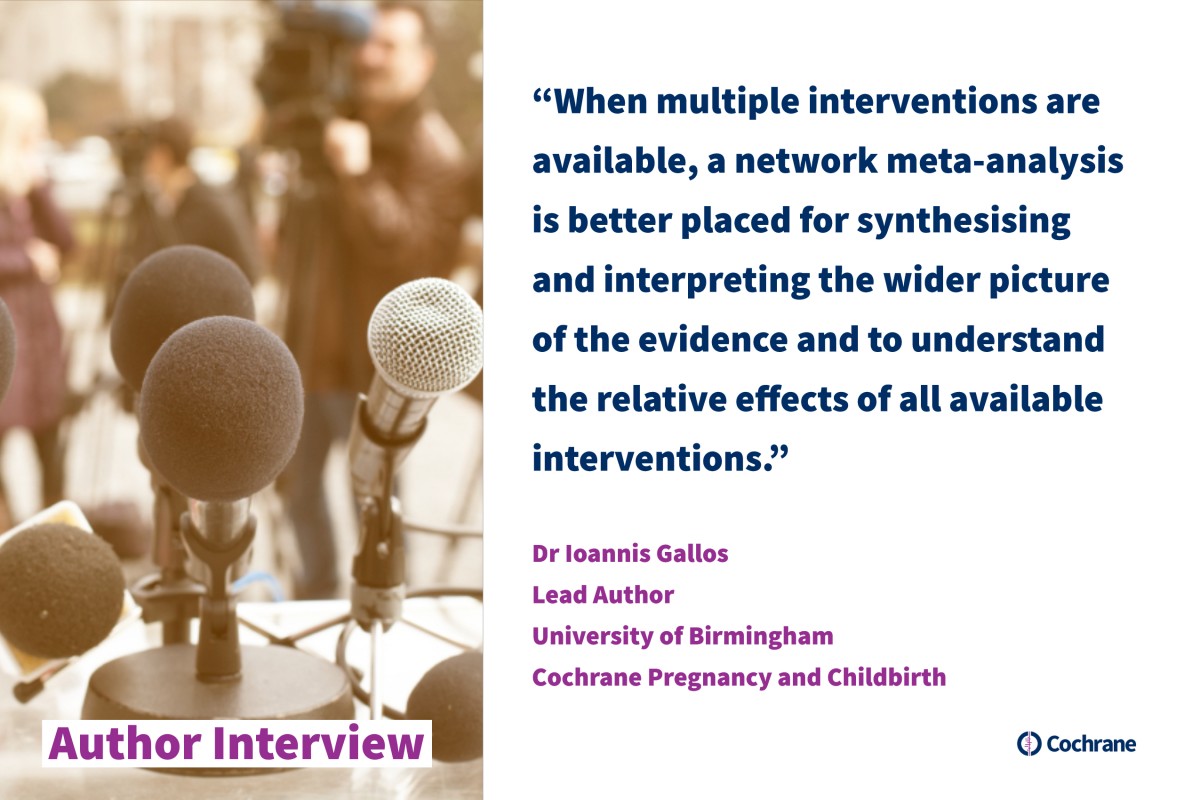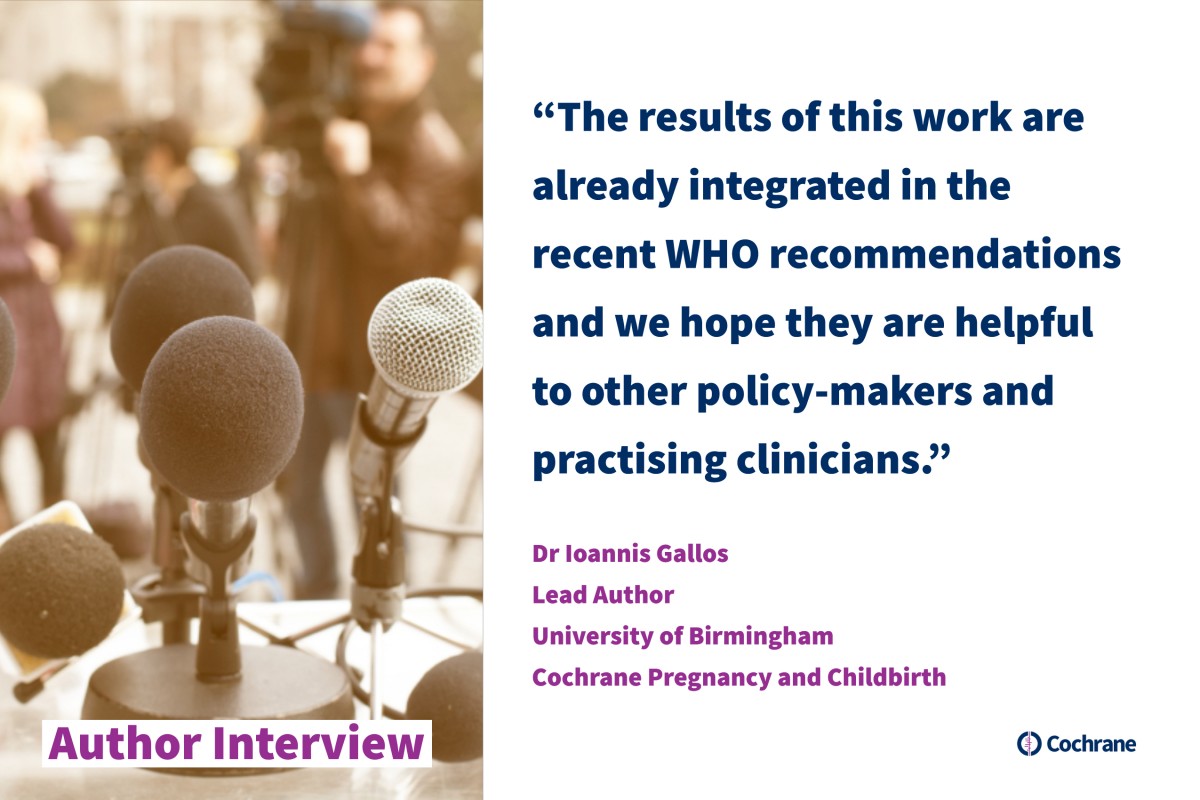
The aim of this Cochrane Review was to find out which drug is most effective in preventing excessive blood loss at childbirth and has the least side effects. The authors collected and analysed all the relevant studies to answer this question.
The lead author of this review is Dr Ioannis Gallos. He is a Clinician Scientist in University of Birmingham and Honorary Consultant in Obstetrics & Gynaecology for Birmingham Women’s Hospital. Ioannis obtained his Degree in Medicine and Surgery (DMS) cum laude from the University of Rome, Italy. He subsequently trained in Obstetrics & Gynaecology in the UK and sub-specialised in Reproductive Medicine & Surgery before joining University of Birmingham.
Ioannis’ research is focussed on reproduction, early pregnancy and maternal health. Ioannis has carried out evidence synthesis including the first network meta-analysis in O&G within Cochrane with cost-effectiveness analysis for identifying the most effective and cost-effective uterotonic agents for preventing postpartum haemorrhage in collaboration with the World Health Organisation. He is the National Clinical Co-ordinator for the “Letrozole or Clomifene, with or without metformin, for ovulation induction in women with polycystic ovary syndrome: a 2x2 factorial design randomised trial (The LOCI trial)” funded by the NIHR HTA programme and is expected to roll out in 50 hospitals across the UK. Ioannis is a consultant for the Tommy's National Centre for Miscarriage Research based at Birmingham Women’s Hospital. He is also the principal investigator for Tommy’s Net, a platform that will help us to collect and store information from many different centres. By sharing information, hospitals will be able to work together to carry out more effective research.
We asked the review’s lead author, Dr Ioannis Gallos a few questions about this important Cochrane Review.
What is the history behind this updated review (what came before?)
This review was originally published in April 2018. It has been updated so soon to incorporate results from a large WHO trial and other recent large trials. We have added 56 new trials (46,612 women), and the update now includes a total of 196 trials (135,559 women).

Why was it important to conduct this review?
The individual uterotonics described in the review have been compared in existing Cochrane Reviews and all comparisons are based on trials that directly compared one uterotonic against another uterotonic agent in head-to-head trials. In the absence of a single randomised controlled trial comparing all available uterotonic agents, uncertainty remains over their relative effectiveness and ranking. When multiple interventions are available, a network meta-analysis is better placed for synthesising and interpreting the wider picture of the evidence and to understand the relative effects of all available interventions. Network meta-analysis has advantages over conventional pairwise meta-analysis, as the technique uses both direct and indirect evidence in a single coherent analysis to improve certainty about all possible treatment comparisons. Indirect evidence is obtained when the relative effectiveness of two competing interventions is inferred through a common comparator, even though this pair may not have been compared directly. WHO wished to update their recommendations on prevention of postpartum haemorrhage for the first time using a Cochrane network meta-analysis.
Can you give a brief summary of results?
All agents were generally effective for preventing excessive bleeding when compared with no uterotonic drug treatment. Ergometrine plus oxytocin combination, carbetocin, and misoprostol plus oxytocin combination may have some additional benefits compared with the current standard oxytocin. The two combination drugs, however, are associated with significant side effects that women might find disturbing compared with oxytocin. Carbetocin may have some additional benefits compared with oxytocin and appears to be without an increase in side effects.
How did you co-ordinate with WHO to have this review integrated into the guideline?
Together with Cochrane Pregnancy and Childbirth and WHO we ran, in parallel, the updated evidence synthesis for the effectiveness and safety of the uterotonic agents. Results of the synthesis were integrated to the guideline and presented to the WHO guideline development group as forthcoming evidence to help them reach a decision about which uterotonic to recommend.

What does the review mean in terms of influencing policy and/or practice?
The results of this work are already integrated in the recent WHO recommendations and we hope they are helpful to other policy-makers and practising clinicians. You can view this here.
- The results of this review will be integrated into a WHO guideline for prevention of PPH
- Read the full Cochrane Review
- Read the feature news item about this Cochrane Review
- Learn more about the Cochrane Pregnancy and Childbirth Group

